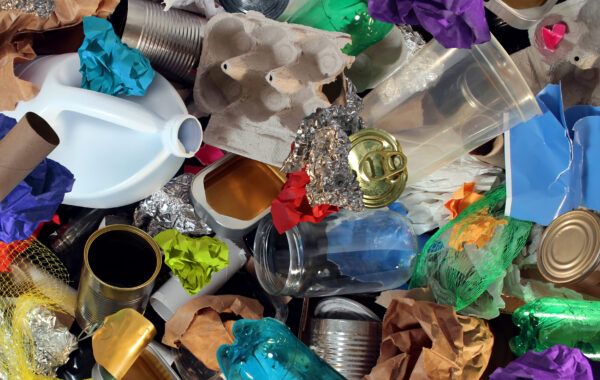January 6, 2020
There’s a lot of buzz around chemical recycling these days, but the term means different things to different people. What exactly is chemical recycling, and how does it fit in the context of the recycling system we have now? Our Essentials of Chemical Recycling course will give you the basics to understand how these emerging technologies work, as well as some of the uncertainties, challenges, and opportunities associated with scaling them up.
Why Focus on Chemical Recycling Now?
Some of the chemical recycling technologies in use today have been around for a while, so why are they getting so much attention now? A confluence of factors is driving the conversation around chemical recycling, ranging from the ocean plastics crisis and new packaging formats, to corporate and collective goals around recyclability and use of recycled content. In this course, we will explore how these and other factors are contributing to the growing interest in chemical recycling.
Polymer Chemistry Drives Technology Options
Different types of plastic resins are distinct at the molecular level. These differences give plastics the unique properties that make them so useful for a variety of packaging applications, like strength, stretchiness, opacity or clarity, and barrier properties. With time and use, polymer chains can become shorter, which diminishes the performance properties of the polymer. Plus, unintentional contamination and intentional additives can make post-use polymers less valuable in the recycling market. These issues can be challenging when plastics are subjected to multiple rounds of mechanical recycling. However, some chemical recycling technologies can take these deteriorated plastics as feedstocks and generate polymers with virgin-like properties. We’ll explore what these are, and how different technologies pair with different types of plastics based on their chemical properties.
Chemical Recycling Isn’t Just One Thing
Because there’s such a wide variety of technologies that fall within the broad category of “chemical recycling,” it’s easy to get confused by what the term means. Purification technologies don’t change the structure of the polymer itself but can remove contaminants, resulting in higher-grade recycled material. Decomposition technologies break polymers down into monomers and intermediates, which can then be re-polymerized into virgin-quality plastics. Conversion technologies transform polymers into new materials, often something similar to crude oil, which can ultimately be used to produce petrochemicals, fuels, or new plastics. The Essentials of Chemical Recycling explores the technologies that fall within these categories, looking at examples and considering which types of feedstock materials are best suited for each technology, including some materials that are hard to recycle mechanically.
Uncertainties, Challenges, and Opportunities
While chemical recycling technologies certainly show promise to help address some of the gaps in our recycling system, they aren’t operating at scale yet. What will it take to get them there? Like all recycling technologies, collection systems and viable end markets need to be present for success. If chemical recycling is to expand opportunities for recycling materials that aren’t conventionally recyclable, we’ll need to first have efficient collection and sortation of these materials. The unique outputs of certain chemical recycling technologies, like fuels and petrochemical feedstocks, also raise questions about how we define recycling and how we track recycled materials within complex global supply chains. And of course, a broad range of regulatory and economic factors influence the potential for chemical recycling to take hold and scale-up. The course grapples with these topics and other questions that will become relevant as companies work toward the goal of implementing chemical recycling at scale.
Chemical recycling has been generating a lot of excitement, but it’s not a silver bullet. The Essentials of Chemical Recycling can help you better understand what chemical recycling technologies actually do, and when they are (and aren’t) a good fit for addressing recycling challenges.
—-
 This course is part of the Essentials of Sustainable Packaging training program. Courses are available online on-demand with a one-year subscription, and special discounts are available for SPC members.
This course is part of the Essentials of Sustainable Packaging training program. Courses are available online on-demand with a one-year subscription, and special discounts are available for SPC members.





